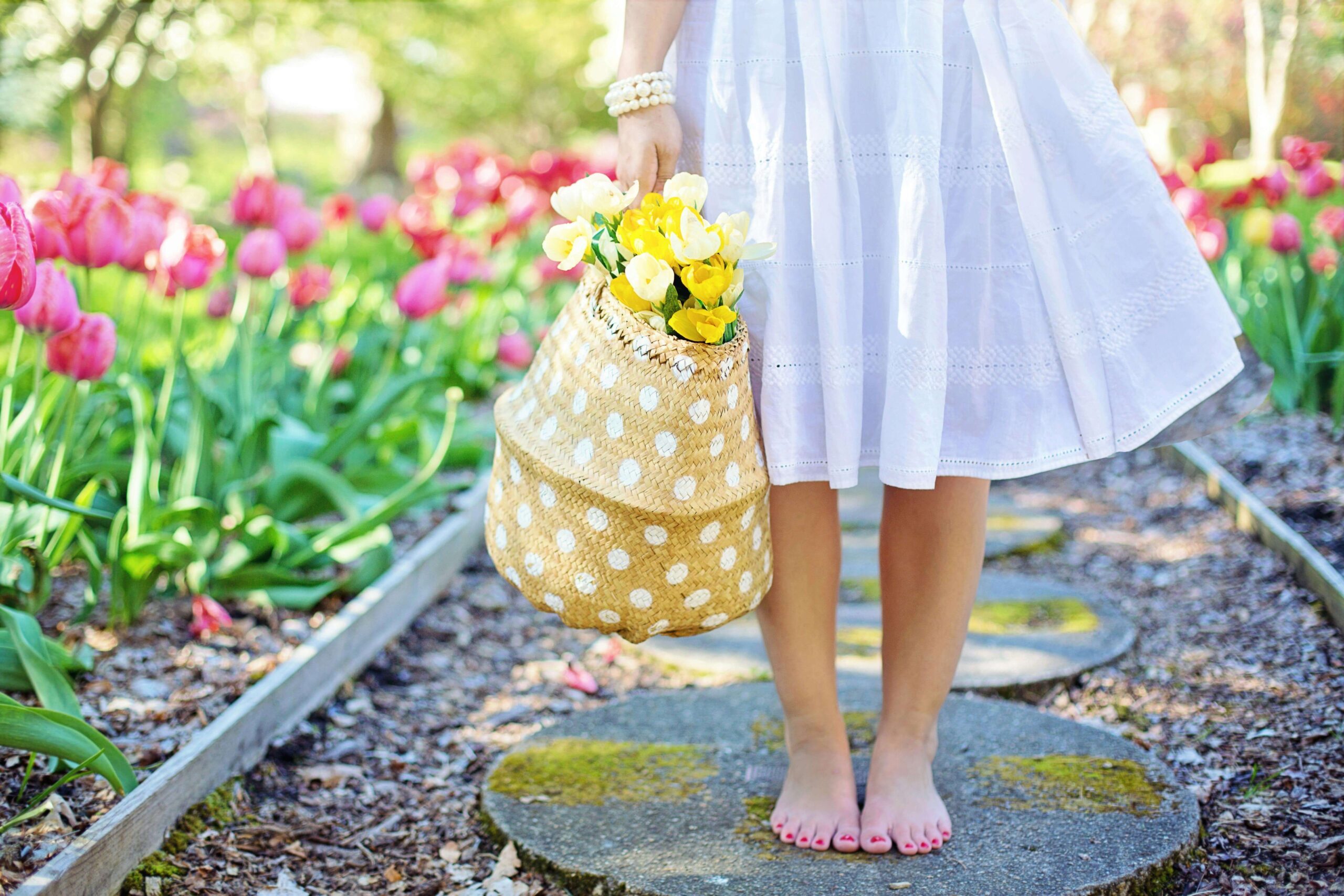The May Day Basket Tradition: History & How to Make One
There’s something undeniably sweet about a tradition built entirely around surprise kindness. The may day basket tradition is just that—a springtime ritual that has graced New England porches, picket fences, and doorknobs for generations. Simple, handmade, and filled with flowers or treats, May baskets are a small way to say: “I’m thinking of you.”
In this post, we’ll explore the New England roots of this charming custom, how it was once celebrated, and share creative ways to revive the may day basket tradition in your own neighborhood, even if it’s just for one house.
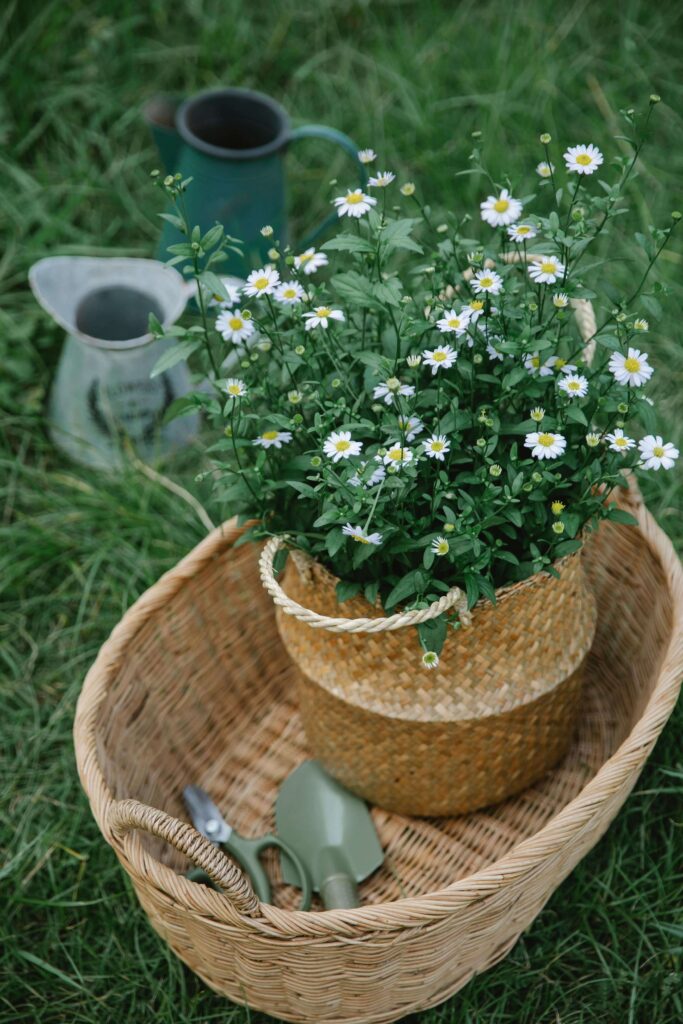
Where It All Began: The May Day Basket Tradition Comes to New England
The may day basket tradition traces its roots to ancient festivals celebrating the return of spring. In New England, the tradition blossomed in the 19th and early 20th centuries, especially in small towns and farming communities where seasonal shifts were keenly felt.
Children and neighbors would weave small baskets from paper, fill them with violets, dandelions, or homemade candy, and deliver them to front doors anonymously. Often, the basket-giver would ring the bell and run away, giggling behind a tree.
It was a ritual of delight, humility, and innocence—and for many, the true start of spring.
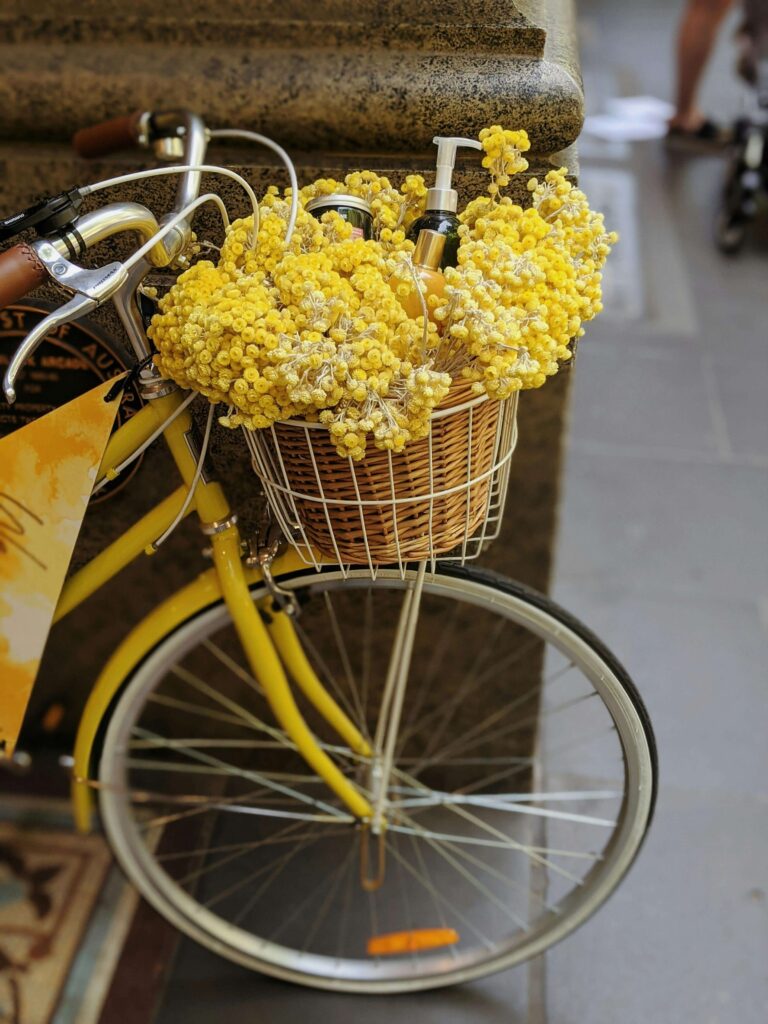
The Joy of Giving: Why the May Day Basket Tradition Endures
Even in a modern world, the may day basket tradition still resonates because of its simplicity. There’s no pressure, no expectation—just a quiet act of generosity.
In small New England towns, you might still find families who continue the tradition. Children decorate paper cones or mason jars, parents gather garden blooms, and neighbors smile at the surprise of a doorstep gift. It’s less about historical accuracy and more about that shared springtime joy.
And in our screen-filled world, what could be more refreshing than a real flower and a handwritten note?
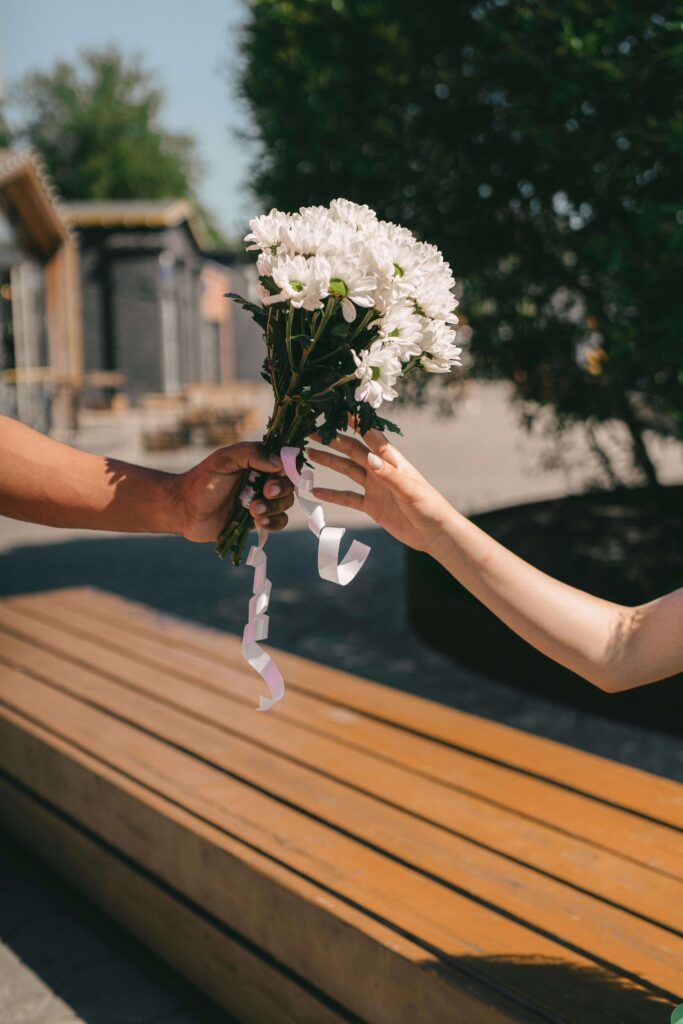
What to Include in a Traditional May Basket (With a New England Twist)
The original may day basket tradition called for whatever was available: wildflowers, handpicked candy, or hand-drawn cards. But if you want to add a little New England flavor, here are some ideas:
- Lilacs or Lily of the Valley (classic early spring blooms in the region)
- Maple candies or molasses cookies
- Pressed flowers or botanical bookmarks
- Fresh herbs like mint or lemon balm
- Quotes from Emerson, Thoreau, or Dickinson
The key is charm, not perfection.
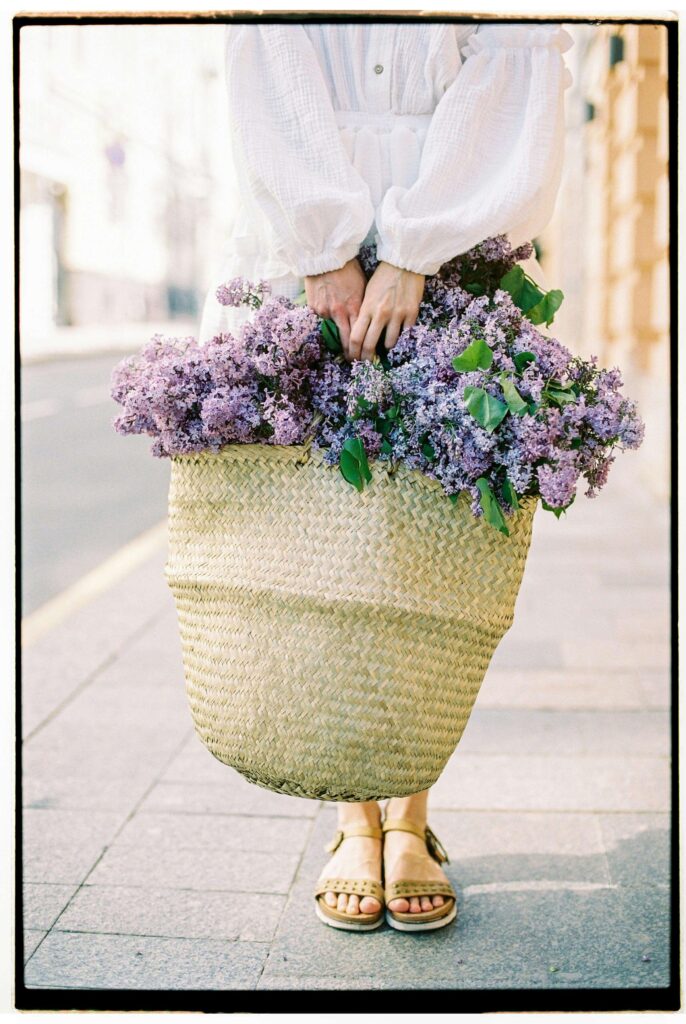
DIY Paper Cones: A Nod to the Original May Day Basket Tradition
One of the most iconic basket types is the paper cone—easy to make, easy to hang.
How to Make a Paper Cone May Basket:
- Cut a square of sturdy paper or cardstock.
- Roll into a cone shape and tape or glue the edge.
- Punch two holes on either side near the top.
- Thread ribbon or twine through to create a handle.
- Decorate with stickers, lace, stamps, or even a touch of watercolor paint.
Tuck in a few small flowers and a handwritten tag. That’s all it takes to participate in the may day basket tradition with vintage charm.
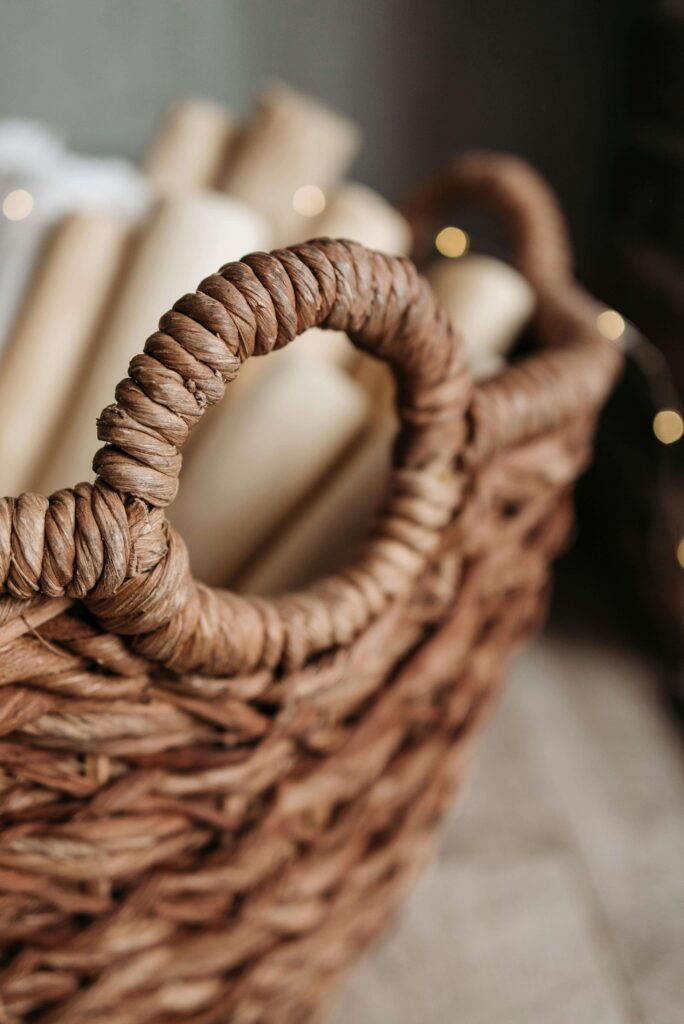
Upcycled Mason Jars and Tin Cans: A More Sustainable May Basket
Want to reuse what you already have? Try making a May basket using old jars or cans.
Mason Jar Basket:
- Add twine around the lip for hanging.
- Fill with daffodils or wild chives from your garden.
- Wrap a handwritten note around the base.
Tin Can Basket:
- Paint with soft spring colors.
- Use a nail and hammer to make holes for a wire handle.
- Add a tea light for an evening glow once the flowers fade.
This is a great way to give the may day basket tradition a modern, earth-friendly spin.

May Day Basket Tradition Ideas for Kids
The may day basket tradition is perfect for little hands. It doesn’t require perfection, and it teaches kindness in action.
Let kids:
- Pick flowers from the yard (or cut paper ones!)
- Paint and decorate the baskets
- Write notes like “You’re blooming lovely!” or “Happy May Day!”
Delivering the basket becomes its own springtime adventure. And they’ll never forget ringing the bell and hiding in the bushes.
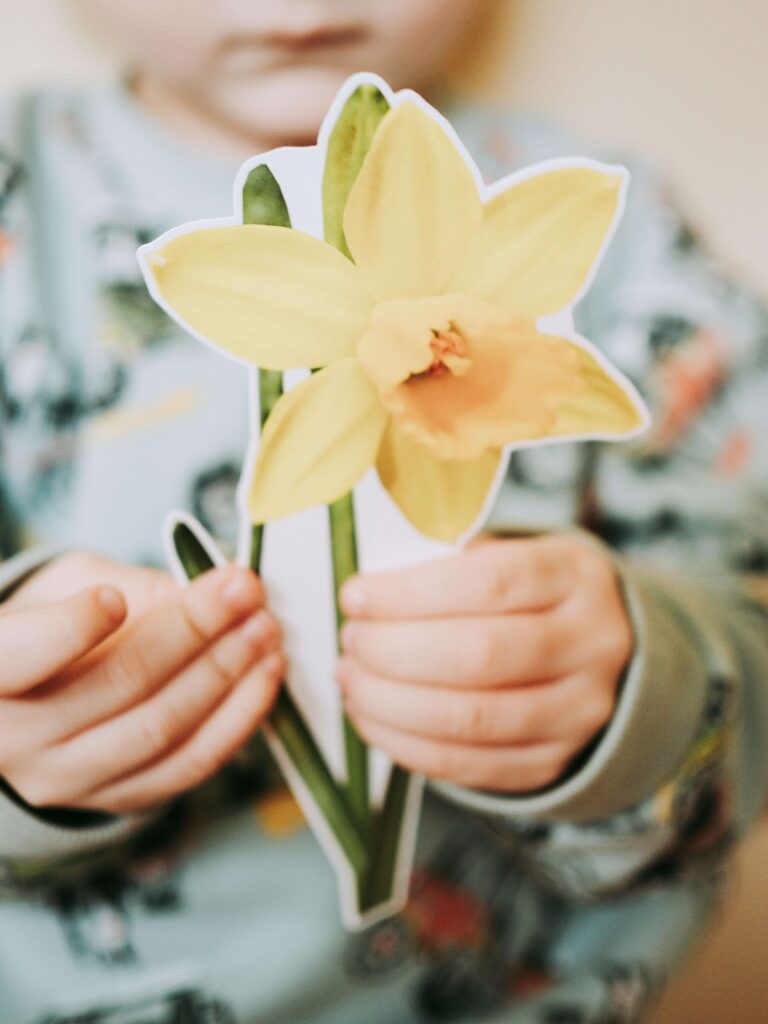
Where to Leave Your May Baskets
Traditionally, May baskets were left on neighbors’ doorsteps, fences, or porch hooks. But in today’s world, a bit of thoughtfulness goes a long way.
If you’re reviving the may day basket tradition, consider:
- Leaving a small note that says “Happy May Day! Just a spring surprise.”
- Only gifting to people you know or who live nearby.
- Skipping anything edible if there are allergy concerns.
The goal is joy, never pressure. Think of it as a spring hello, not a social obligation.
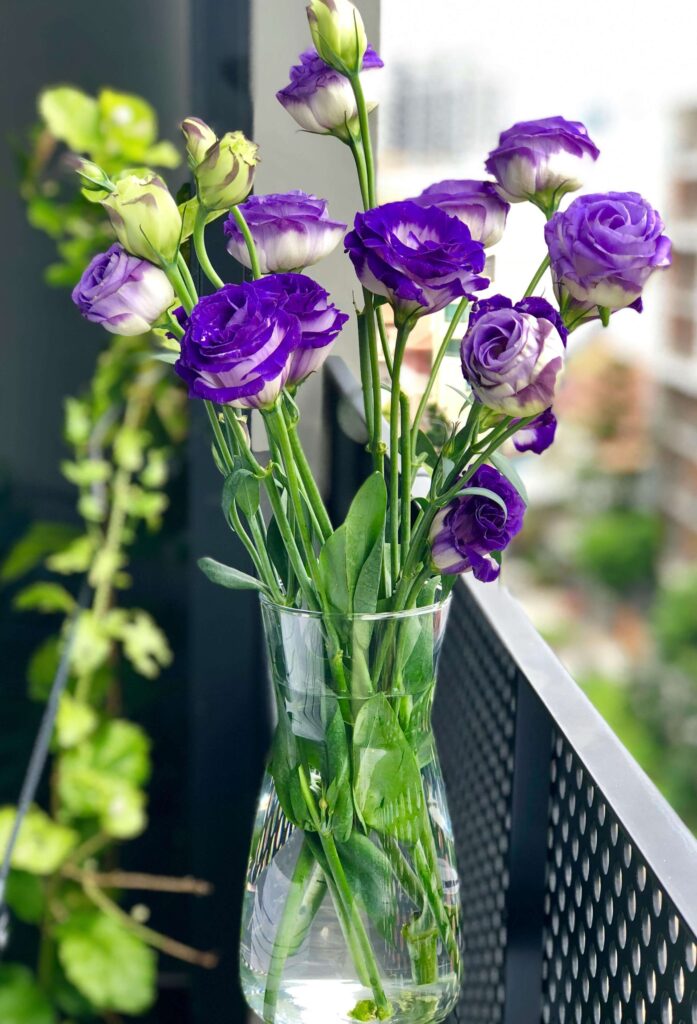
Hosting a May Basket-Making Party (Porch Edition)
Want to spread the joy? Invite friends or kids from the neighborhood for a casual basket-making session on the porch.
- Provide simple supplies: paper, jars, ribbon, markers, flowers
- Serve lemonade or strawberry muffins
- Keep it low-key and joyful
It’s a lovely way to bring community into your porch season and celebrate the may day basket tradition together.

The Meaning Behind the May Day Basket Tradition
At its core, this tradition is about noticing others. About pausing to say: “I thought of you today.”
Whether you’re placing a basket on your grandmother’s porch or handing one to a friend at church, you’re participating in something that has deep roots in kindness.
New Englanders know that spring can be fleeting. What better way to honor it than by sharing its beauty in a humble basket?

Keep It Going: Simple Ways to Celebrate May Day Every Year
Once you’ve joined the may day basket tradition, it might just become a spring ritual you look forward to.
Other ways to celebrate:
- Go on a wildflower walk with a friend
- Hang a spring wreath on your own door
- Write little notes and tuck them in library books
It doesn’t have to be big. It just has to be kind.
